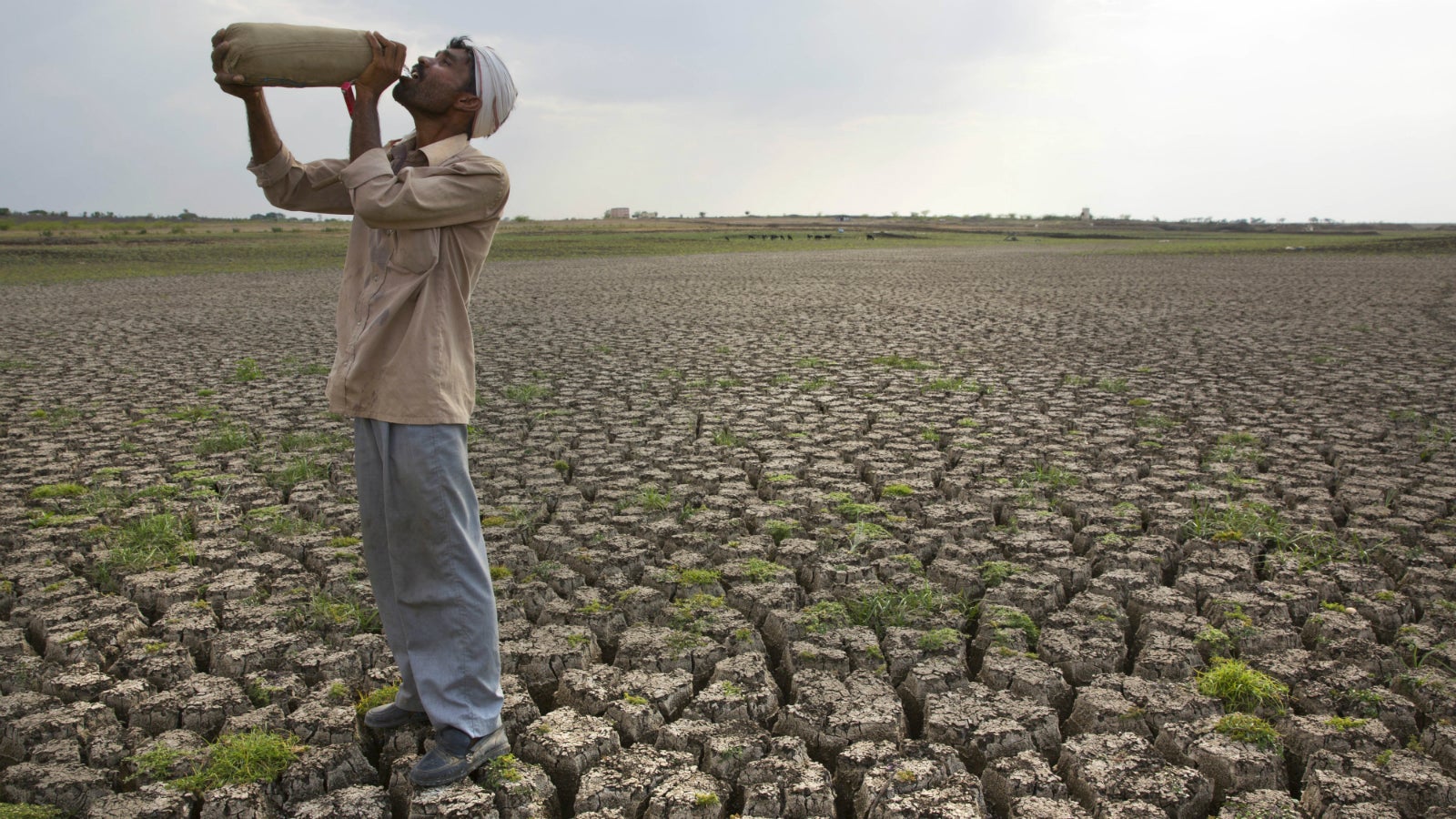Will clean water be our biggest source of conflict in the future?
If you had to imagine what we will be obsessing over in 50 years, what would top your list? We put versions of that question to dozens of entrepreneurs, scientists, academics, and artists, including Richard Branson, Temple Grandin, Ian Bremmer, Ann Kim, and Bright Simons. From their 550 answers, some clear themes emerged. One such theme: water.


If you had to imagine what we will be obsessing over in 50 years, what would top your list? We put versions of that question to dozens of entrepreneurs, scientists, academics, and artists, including Richard Branson, Temple Grandin, Ian Bremmer, Ann Kim, and Bright Simons. From their 550 answers, some clear themes emerged. One such theme: water.
Polluted rivers, city-wide droughts, and destructive floods are contributing to a global water crisis. A scarcity of clean, fresh water is challenging populations (Quartz member exclusive) in South America, the Middle East, and parts of Africa. Companies that require water to make clothes or grow food cut into the amount of water available for people to drink. The World Wildlife Fund, one of the world’s biggest NGOs, has a team of 500 people dedicated to studying business’ effect on water supply (Quartz member exclusive). Though organizations are beginning to confront the issue, many experts we spoke with for the World in 50 Years agree that water scarcity has the potential to be at the heart of our biggest conflicts.
Here are some of their answers:
What kinds of companies will be the most important?
Food and water providers will be key. People who are also trying to figure out how to live on and under water, and people who negotiate with green energies, especially solar and wind, will also be really important. Of course, the evolving tech sphere—for surveillance, cash transfers, and communications—will have met the increasing global state appetite for citizen control in ways more horrifying than any science fiction story. Those who find new ways to traffic in data and its analytics will be key to the new ways we understand the world.—Njoki Ngumi, filmmaker and doctor
As water becomes a scarce resource, companies producing it from a variety of sources will become critical for survival.—Noam Bardin, CEO, Waze
What will cause the biggest conflicts?
Resources (food, land, water).—Matthew Rugamba, founder and creative director, House of Tayo
Water. Climate change. Displaced populations and access to clean water.—Bill Nye, scientist and author
Resources—water, food, land—will cause the biggest conflicts.—Joanna Coles, executive producer “The Bold Type”
Feuds over water, especially downriver countries concerned about upriver countries taking more than their fair share.—Nicholas Kristof, columnist, The New York Times
Water.—Hung Huang, author, television host, and publisher
What will be the biggest change to our natural world?
Our most valuable resource will be water.—Temple Grandin, professor of animal science, Colorado State University
Salt water will come up and drinking water will be less. People will have to grow gills so they can drink it.—Mai Khôi, artist and activist
What will our most valuable resource be?
Clean water and air.—Tanzina Vega, host of Takeaway, WNYC
Clean water.—Max Levchin, co-founder and CEO, Affirm
Water.—Nadifa Mohamed, author
Water.—Isabel Allende, author
To read more answers, visit the World in 50 Years project.